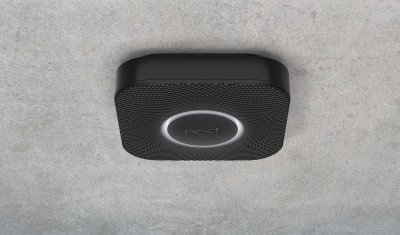Nest Labs–now a part of Google–is a two-product company. One of the products is the Nest thermostat. The other, the Nest Protect smoke and carbon monoxide detector, has been on a hiatus of sorts: In April, Nest pulled it off the market after discovering that Nest Wave, the feature which let you wave your hand to turn it off in case of a false alarm, might cause it to stay silent when there was smoke which indicated an emergency. (Last month, the Consumer Product Safety Commission formally issued a recall for existing Nest Protect units–although all that meant was that owners were advised to allow their detectors to download and install an update which disabled the Wave feature.)
Now Nest Protect is going back on sale–first at Nest’s web site, and soon at retailers. But the new units won’t have the Wave feature: Nest, which said when it first disclosed the problem that it might take at least two or three months to address, still doesn’t have a fix. A company representative told me that the company is working on it, and didn’t provide an updated estimate of when it might be ready.
Nest is also knocking down the price of Nest Protect from $129 to $99–a meaningful drop, especially given that most homeowners who like the idea of Nest Protect will want to buy several and install them wherever they’ve currently got a smoke detector.
In other Nest Protect news, Nest is announcing a white paper based on data about carbon monoxide collected from Nest Protect units in the field, which use their built-in Wi-Fi connections to send back anonymous information to the company.
The actual information in the report isn’t all that fascinating: For instance, .15 percent of homes with Nest Protect reported a carbon-monoxide incident during the test period, and the company estimates that a million households in the U.S., Canada and U.K. are exposed to high amounts of carbon monoxide each year. But it’s a reminder of one of the virtues of smart household devices: The big data they collect can help us humans be smarter about important matters such as household safety. That’s sure not true of the garden-variety smoke/CEO detectors in my home.


Guess I might as well get the tasteless “fire sale” commenter pun out of the way now…
Seriously though, I’m curious at how low Nest’s new Google overlords will drop prices on the devices, in return for pushing the sorta-smart home concept.
Gee. Google. Yippee. Quite possibly the only company in the world who can rival both cr’Apple AND Micro-stupid when it comes to COCKING-UP virtually every product and/or concept they sink their miserable hooks into…